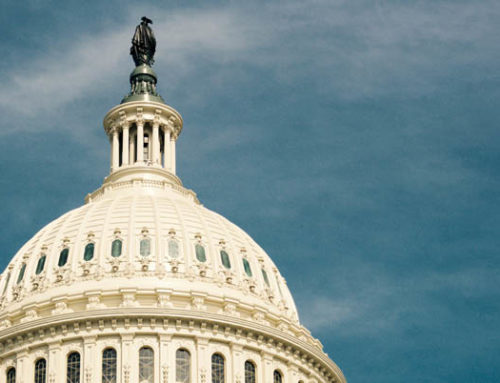While many legislators are participating in their annual National Conference of State Legislators (NCSL), a lot can happen whether you’re distracted by travel, the Summer Olympics or the tabloidesque media coverage of presidential politics. The past week offered a few relatively good examples of why the routine happenings of politics matters, including newly elected/selected members of the Texas Legislature, decisions on voter identification criteria for November’s general election, the updating of Texas’ 10 year transportation plan, and a big staff change in Governor Abbott’s Office, which are summarized below.
Update, HD146: Thierry Chosen to Replace Miles
The 24 precinct chairs present for this morning’s meeting selected attorney Shawn Thierry by a 13-11 runoff vote to replace Rep. Borris Miles (D-Houston) on the general election ballot, effectively electing her to the Legislature in January. Miles was running un-opposed before he was selected to replace Sen. Rodney Ellis (D-Houston) last month.
Former Houston council candidate Larry Blackmon and Harris Co. Department of Education trustee Erica Lee Carter were also nominated. Three precinct chairs were absent. Two of them, both Carter supporters, were said to be in the hospital. Carter is U.S. Rep. Sheila Jackson Lee’s daughter.
Money Pouring in for state legislative races
Local politicians are preparing for general elections on November 8th. Tarrant County politicians and challengers so far have banked more than $2.6 million, the latest campaign finance reports filed with the Texas Ethics Commission show.
“It’s a good amount of money at this point,” said Allan Saxe, an associate political science professor at the University of Texas at Arlington. “The donations are likely to go up as the election time approaches.”
Money raised by legislative officeholders and candidates in Tarrant County who will be on the ballot in November:
TEXAS SENATE
- District 12: Sen. Jane Nelson, who heads the Senate Finance Committee reported raising $12,000 this year and has more than $1.2 million in cash on hand. Contributions included $2,500 from Charles Butt, CEO of H-E-B grocery stores; $2,000 from the Travel PAC, a political arm of the Texas Travel Industry Association; and $1,000 from the BEEF PAC, the political arm of the Texas Cattle Feeders Association.
- District 22: State Sen. Brian Bird- well, R-Granbury, reported raising $25,000 this year and has $421,848 cash on hand. Donations this year include $2,500 from the GM PAC General Motors Co.; $5,000 from the Texas Restaurant Association PAC; and $1,500 from the WAL PAC Walmart Stores Inc. PAC for Responsible Government.
- District 90: State Rep. Ramon Romero Jr., D-Fort Worth, raised $21,700 this year and has $106,316 in the bank. Contributions this year include $10,000 from Jorge Baldor of Dallas; $5,000 from former state Rep. Domingo Garcia’s New American PAC; and $1,000 from Chesapeake Energy for Texas. He has no Republican challenger in November.
- District 92: State Rep. Jonathan Stickland, R- Bedford, raised $4,360 this year and has $47,446.81 in cash on hand. Contributions received this year include $1,000 from Tony Pack of Southlake, general manager of Sam Pack Five Star Ford; $1,000 from Lee Chapman of Irving, president of the DFW New Car Dealers Association; and $500 from state Rep. Jeff Leach, R-Plano.
- District 93: State Rep. Matt Krause, R-Fort Worth, raised $17,553 this year and has $131,392 in cash on hand. Contributions include $1,000 from the TX Travel Industry Association P AC; $1,000 from the Texas McDonald Operators Assoc. P AC; and $1,000 from Paul Vinyard of Frisco, president of Babe’s Fried Chicken.
- District 94: State Rep. Tony Tinderholt, R- Arlington, raised $8,640 this year and has $57,869 in the bank. Donations include $5,000 from Middleton D. Mayes, a Houston retiree; $2,000 from state Rep. Scott Turner, R-Rockwall; and $1,000 from Texans for Lawsuit Reform.
- District 95: State Rep. Nicole Collier, D-Fort Worth, raised $18,996 this year and has $14,025 in cash on hand. Contributions to her campaign include $2,000 from Hospac State, the political action commit- tee for the Texas Hospital Association; $2,000 from the Texas Orthopaedic P AC; and $1,500 from the Texas Trial Lawyers Association PAC.
- District 96: State Rep. Bill Zedler, R-Arlington, raised $6,960 this year and has more than $55,000 in the bank. Contributions include $2,500 from the Texans for Lawsuit Reform P AC; $1,000 from the Texas Chiropractic Association P AC; and $500 from the District 4 Texas Chiropractic Association.
- District 97: State Rep. Craig Goldman, R-Fort Worth, raised $16,325 and has $237,329 in the bank. Contributions include $2,500 from the Apartment Association of Tar- rant County; $2,500 from The Chickasaw Nation; and $1,000 from Bobby Cox, president of Bobby Cox Companies.
- District 98: State Rep. Giovanni Capriglione, R- Southlake, raised $42,985 this year and has $2,018 in cash on hand. He has $69,307 in outstanding loans to himself. Among his contributions this year: $5,000 from Trevor Ahlberg of Irving, CEO of Cottonwood Financial; $5,000 from Michael Hernandez o f Colleyville, president of D&M Auto Leasing; and $2,500 from The Chickasaw Nation.
- District 99: State Rep. Charlie Geren, R-Fort Worth, raised $255,286 this year and has $242,250 in cash on hand. Contributions include $40,000 from Charles Butt, CEO of the H-E-B grocery stores; $10,000 from Richard and Diana Strauss of Dallas, of the Republic Property Group; and $10,000 from the Texans for Lawsuit Re- form PAC.
- District 101: State Rep. Chris Turner, D-Grand Prairie, raised $63,473 this year and has $104,704 in the bank. Donations include $5,000 from Larry Jaynes of McGregor, owner of Fashion Glass & Mirror; $5,000 from the Texas Association of Realtors Political Action Committee; and $2,500 from the Chickasaw Nation.
This past Tuesday was the Election Day for HD 120, and voters elected a representative to serve the remainder of the former Rep. Ruth Jones McClendon’s unexpired term. The election exhibited very low in-person early voting turnout.
Independent Laura Thompson captured the remainder of former Rep. Ruth Jones McClendon’s (D-San Antonio) unexpired term following a four-point, 50-vote victory over Democrat Lou Miller. Turnout was 1.3% of registered voters. Thompson will be the incumbent in November against a heavily favored Barbara Gervin-Hawkins if Thompson files sufficient signatures to validate her independent candidacy.
Her victory makes the partisan makeup of the House 99 Republicans, 50 Democrats and 1 independent.
Thompson had hoped to win an independent spot on the November ballot but didn’t gather sufficient signatures. She hinted at another race in the future.
“You might” see her on another ballot, she said. “There are some things in the works,” she said.
On her campaign webpage, Thompson said “the constant thread in my life is service.” She vowed to advocate for small businesses, improve transportation and education, and make technology more widely available. As a poet and author, she also pledged to support the arts.
If Thompson is unable to claim a spot on the general election ballot, she would become (barring a special session) the first legislator who would not cast a vote on the House floor since former Rep. Dan Barrett (D-Fort Worth), who won a 2007 special runoff election after the regular session concluded and did not win re-election in 2008. Rep. John Lujan (R-San Antonio) also risks this fate, but he is at least guaranteed a spot on the ballot.
Texas agrees to water down voter ID Law for November election
Texas on Wednesday agreed to dilute its voter ID law and spend at least $2.5 million the coming months on voter outreach efforts as part of the court ordered accommodations for the November election. The agreement between Texas and minority groups suing over the photo 1D measure will weaken the law to allow voter registration cards, birth certificates, utility bills, paycheck stubs and government documents with a voter’s name and address as acceptable identification to vote.
In terms of Nationwide efforts on the impact of the new voter ID regulations, the changes to Texas’ law come as judges across the country are blocking several Republican-controlled states from imposing strict voter ID rules this November.
Attorney General Ken Paxton’s office said with the election three months away, the deal will serve only as a temporary solution, while the state figures out its next move. The attorney general did not rule out asking the U.S. Supreme Court to intervene. “The case is not over,” said Paxton spokesman Marc Rylander. “In light of the 5th Circuit’s recent decision, we are working hard on saving all the important aspects of our voter ID law.”
Under the deal submitted to the court Wednesday, voters in November’s election would be able to fill out paperwork to swear they could not obtain an appropriate form of ID to vote and indicate the reason, a process that mirrors safety nets put in place by other states with voter ID measures.
Critics of Republican-led efforts to change voting laws in key states are states are scoring a new round of victories in courts across the country. The wave of favorable decisions, both proponents and opponents say, illustrates a new approach voting advocates are taking in court. In 2013, the Supreme Court ruled that a part of the Voting Rights Act laying out criteria under which states could be required to seek approval prior to changing voting laws was outdated. The decision effectively rendered moot Section 5, which required states fitting that criteria to seek approval from the Justice Department or the D.C. District Court prior to changing election laws.
In effect, voting rights advocates worried, the Supreme Court had shifted the burden of proof from the states, which previously had to show their proposed changes would not discriminate against minority voters, to the voters themselves, who would now have to show their rights were infringed upon. In just the past two weeks, state and federal district and circuit court judges have struck down voter identification laws and other measures changing voting rules in North Carolina, Kansas, Wisconsin and Texas. Earlier this year, a federal district court also ruled against a plan to curtail early voting in Ohio.
“What we’re seeing now out of Texas, Wisconsin and North Carolina is an evolution of the Voting Rights Act,” said Michael McDonald, a political scientist at the University of Florida who has testified as an expert witness in voting rights cases. “Plaintiffs are now having to use Section 2 as a way to overturn laws that would have likely been prevented from going into effect because they would have failed to earn pre-approval under Section 5.”
The Supreme Court ruled against Section 4 in a 5-4 decision authored by Chief Justice John Roberts, joined by the court’s four conservatives. During oral arguments, Kennedy asked whether Section 2 challenges could be brought if Section 4 was struck down — a sign, some voting rights advocates say, that Kennedy could side with the four liberal justices if some of the recently struck down laws are appealed to the high court.
“Whether or not this is a correct interpretation by the lower courts is still outstanding,” McDonald said. “I think this is all heading to the Supreme Court. They have a responsibility to answer these questions, to give the lower courts guidance.”
Big Houston-are freeway projects to take shape with state windfall
Texas’ IO-year plan for transportation, which reflects the state’s traditional mind- set centered on road building rather than greater investment in alternative forms of commuter travel, is expected to send billions of dollars more to expand Houston- area highways, including some of the region’s most sought-after freeway projects.
The 10-year plan reflects the same reliance on road expansion as a solution, said Kyle Shelton, a post-doctoral fellow at the Kinder Institute for Urban Research at Rice University who has extensively studied Houston’s freeway expansion and development.
“This approach tends to have a brief impact in the immediate period after completion before induced demand kicks the congestion back up and it builds to the next crisis point,” Shelton said. “The cycle has progressed like this with every generation o f highways in Houston. It’s not a particularly sustainable solution to what is likely an intractable problem in our region because of they way we have and continue to grow.”
Three of the top five and five of the top I0 most congested roadways in the state are in the Houston area, said Jeff Weatherford, deputy director of the Houston Department of PubIic Works and Engineering. In a national study, 70 percent of the truck chokepoints listed in Texas were in the Houston region, Weatherford said.
Nonetheless, the Dallas area received more money for traffic congestion relief. With state funding fixed, regional officials are making their case for a larger share. Houston is no different, Weather- ford said.






